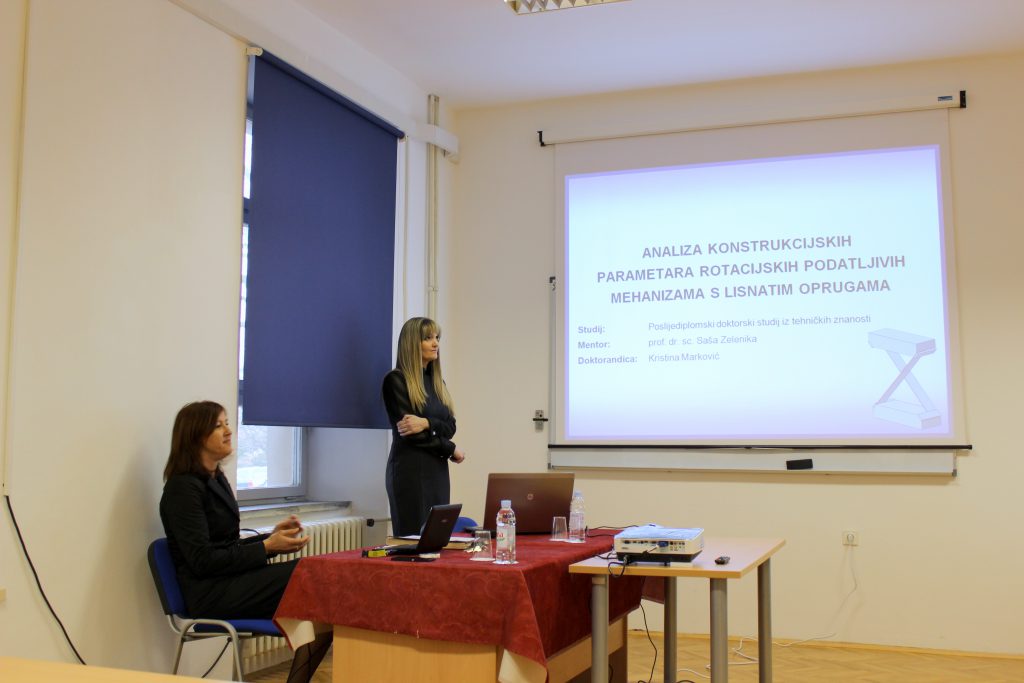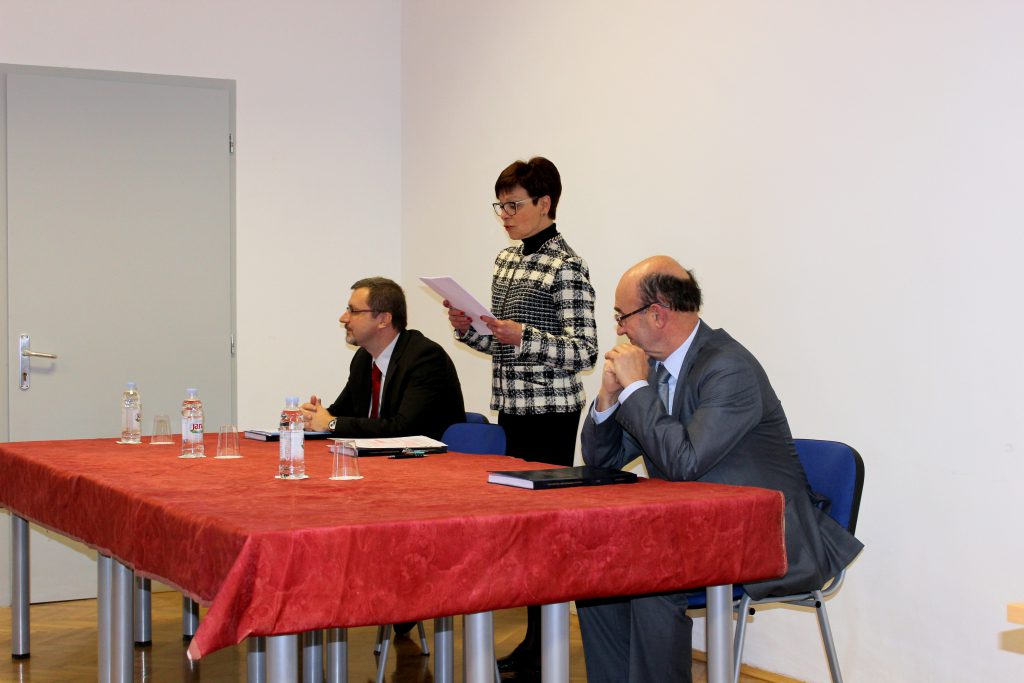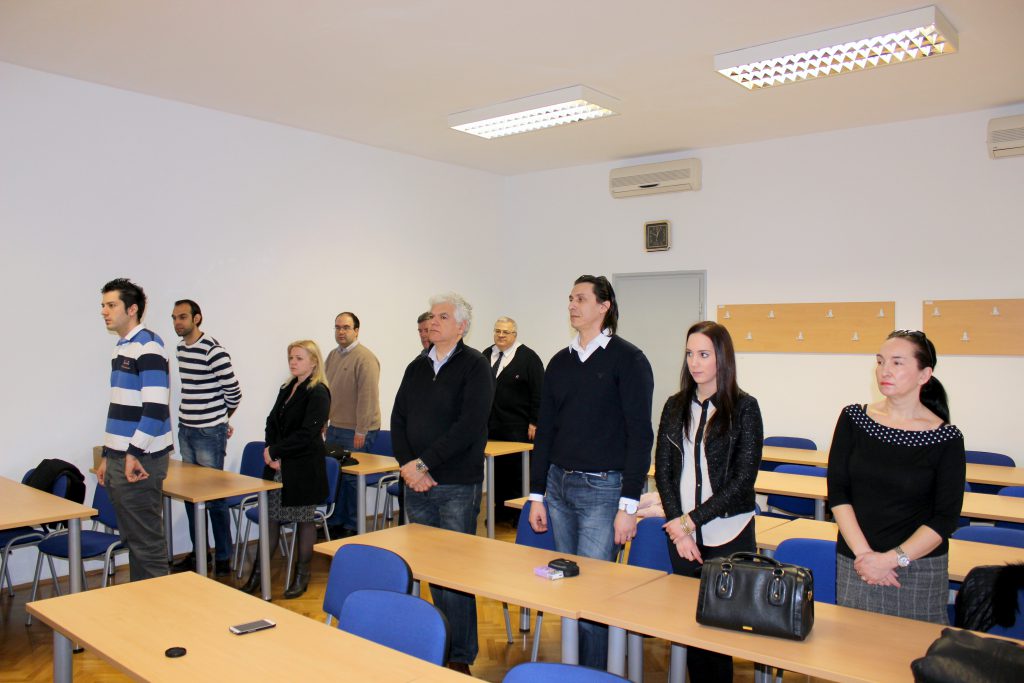Our member D. Sc. Kristina Marković defended her doctoral thesis entitled “ANALYSIS OF INFLUENCING PARAMETERS IN THE DESIGN OF CROSS – SPRING PIVOTS” on March 20th, 2015.
Doctoral thesis supervisor vas Prof. D. Sc. Saša Zelenika.
Committee for the defense of the doctoral thesis:
- Prof. D. Sc.Dubravka Siminiati, University of Rijeka, Croatia, Faculty of Engineering (Sveučilište u Rijeci, Tehnički fakultet) – Committee Chair
- Prof. D. Sc. Saša Zelenika, University of Rijeka, Croatia, Faculty of Engineering (Sveučilište u Rijeci, Tehnički fakultet)
- Prof. D. Sc. Nenad D. Pavlović, University of Niš, Serbia, Faculty of Mechanical Engineering (Mašinski fakultet Univerziteta u Nišu)
Thesis abstract:
Compliant mechanisms, that gain at least part of their mobility from the deflection of flexible members, are an alternative to conventional sliding and rolling mechanisms used to transfer motion, power or force. Compliant mechanisms are nowadays widely used in mechanical engineering design, precision engi neering as well as the micro- and nanosystems technologies. Parameters influencing the design of differ ent configurations of cross-spring pivots are analysed in this doctoral thesis. In fact, the main goals in their design are: achieving the highest possible accuracy and precision, achieving the lowest possible variability of rotational stiffness, stability, design simplicity and reliability. Since the considered mechanis ms are constituted by spring-strips, the prediction of their behaviour is to be based on the analysis of the characteristic parameters of the strips themselves. In order to analyse the influencing parameters in the design of symmetrical cross-spring pivots loaded by a pure couple, an analytical model of the behaviour of spring-strips in the field of large (geometrically nonlinear) deflections based on the Elastica method, as well as a numerical model based on the finite elements method, are hence developed in the thesis. In order to assess the applicability of the developed numerical model in predicting the stress-strain behaviour of the considered mechanisms, results obtained numer ically are compared with experimental data available in literature. With the goal of determining the limits of applicability of the approximated calculation methods depending on the needed accuracy, the results of the analytical calculations of the stress-strain behaviour of the cross-spring pivots are then compared with results obtained by using the finite element method. Numerical calculations are used next to optimise pivots’ design by assessing the influence of the angle and the position of the intersection as well as of the initial curvature of the spring-strips,. A design solution allowing the minimisation of the parasitic shifts, as well as the minimisation of variability of the rotational stiffness, even for large rotations of the pivot is thus obtained. At the end of the thesis, ananalysis of the influence of external loads on the variability of rotational stiffness and on the entity of the parasitic shifts is also performed. The results obtained in the doctoral thesis allow thus not only assessing the influence of the design parameters in the design of cross-spring pivots (i.e. the influence of these parameters on rotational stiffness and the accuracy of the considered mechanisms), but also creating the preconditions for the development of a new class of ultra-high precision rotational compliant mechanisms with potentially broad applications in industrial and design praxis.



